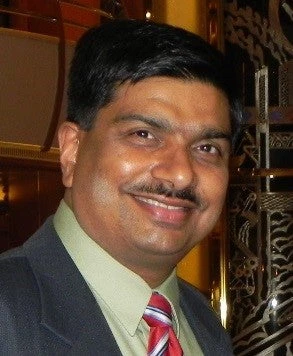 أحد الشوارع التجارية الرئيسية بالعاصمة اليمنية صنعاء يستفيد من إنارة الشوارع بالطاقة الشمسية بتمويل من البنك الدولي.
أحد الشوارع التجارية الرئيسية بالعاصمة اليمنية صنعاء يستفيد من إنارة الشوارع بالطاقة الشمسية بتمويل من البنك الدولي.
“You have no idea how I felt when I saw the street lit up; I remembered the old days.”
Abdulmaneem, a 30-year old man from Yemen’s capital, Sana’a, couldn’t contain his elation. “This gave me hope that someday war will end, and we will have electricity again,” he said.
Abdulmaneem is not alone in his jubilation. As soon as one of Sana’a’s main commercial streets was fully lit up by solar power, celebration spilled over among its residents.
Even before the current conflict in Yemen began, much of the war-torn country’s population was already deprived of basic electricity services. The situation deteriorated further when the conflict escalated in early 2015. The percentage of Yemen’s population with access to public electricity fell from 66% in 2014 to below 10% by the end of 2017 . Nighttime light emissions visible from satellite imagery indicate a reduction in electricity consumption of about 75%.
An assessment conducted by the World Bank in partnership with the government of Yemen shows that around 55% of the infrastructure assets of the power sector in 16 assessed cities have been damaged and only 12% are fully operational . The lack of functioning public grid facilities has had a significant negative impact on the delivery of other critical services, in particular health, education, water, and sanitation, with severe consequences for development and poverty. For example, the lack of electricity impeded the work of waste-water treatment plants, which contributed – amongst other causes – to a significant cholera outbreak in Yemen.
In a post-conflict scenario, large multilateral development institutions such as the World Bank typically use their financial resources and technical expertise to rehabilitate public infrastructure through large-scale investment projects. But in the case of Yemen, a country that is still facing conflict and continues to require urgent service delivery restoration, the World Bank has focused on smaller, distributed, off-grid energy sources such as solar power that are easier and quicker to deploy, more resilient, sustainable and becoming increasingly cost-effective compared to on-grid, fossil fuel-based, traditional energy solutions.
In 2017, the World Bank’s International Association for Development (IDA) set out to help bring back a sense of normalcy in the country by restoring essential urban services through the Yemen Integrated Urban Services Emergency Project (YIUSEP). In collaboration with the United Nations Office for Project Services (UNOPS), the Bank is financing off-grid solar photovoltaic (PV) electricity solutions for schools, hospitals, street lights, and water and sanitation facilities.
The project is helping provide more than 3,000 all-in-one solar LED street lighting systems in Sana’a and Aden, which cover a total length of more than 50 kilometers of urban roads . Each system includes a 130-watt solar PV panel and 80-watt energy-efficient LED lights put together in one single unit for easy installation along with integrated battery storage that allows the street lights to operate for up to three days even during cloudy conditions. Thanks to their average lifetime of 25,000 hours, LED lights significantly reduce maintenance costs and increase sustainability because they help avoid frequent replacement as in the case of conventional lamps .
This innovative combination of solar energy and energy efficiency in street lighting is one of the first of its kind in any Bank operation. With falling prices and increasing efficacies of both solar PV panels and LED lights, this kind of intervention could become a good candidate for replication in other countries affected by fragility, conflict, and violence.
The solar PV LED street lights in Sana’a and Aden have brought many other benefits that go beyond energy saved and greenhouse gas emissions avoided . These low maintenance street lights with minimal operating costs have further enhanced traffic safety, increased security for pedestrians and local communities, in particular women, and created an environment for increased economic activity resulting in many shops and kiosks being set up along the newly lighted streets.
And most importantly, they are helping to restore a sense of normalcy for residents who have shown an incredible amount of resilience despite the ongoing conflict.
And this is cause for celebration for people like Abdulmaneem.
Subscribe here to stay up to date with the latest Energy blogs.



Join the Conversation